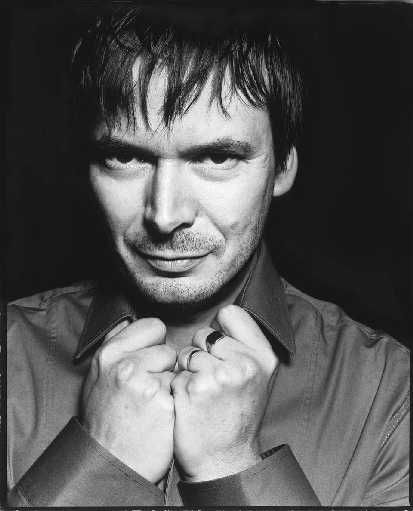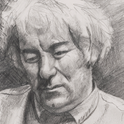Trying to get to Kaveri Lalchand’s “Pulp Fiction” talk when Wendy Cope calls. She wants to meet me at her hotel tomorrow morning. Be still, my beating heart.
Lalchand is a garment manufacturer who went into business with an editor of maths textbooks, in order to publish Indian pulp fiction for the English-language market. She chats from the stage like a stand-up comic, showing video clips, reading “naughty” stories, and dishing out copies for the audience to look at. Blaft, the publishing house, is giving away bookmarks that proclaim: “Reading is sexy.” Her purpose is to reconnect with the trishaw-driver readership: to achieve this she has been begging 5000-copy translation deals from million-selling Hindi authors. All very refreshing and non-literary: “I don’t know what transgressive fiction is… but we published it anyway.” For once, I find myself wishing the event could be longer.
Coffee with graphic novelist Sarnath Banerjee—anyone who writes a story citing Karl Marx, blue movies and Baudrillard on constipation is fine by me—and Smriti Daniel, a colleague at the (SL) Sunday Times. Watched the opening of their “Corridors and Capers” session, then head off to set up for my own panel. While the sound guys do their thing, I formally invite everyone in the bar to stick around, since we are going to ride roughshod over their conversations anyway.
Next, “The Literature of Post-War Sri Lanka” —featuring Pradeep Jeganathan, David Blacker, Neluka Silva (author and Professor in English at Colombo University) and Malinda Seneviratne (poet and journalist), and chaired by yours truly—goes off, if I may say so, very nicely. The place is more-or-less full, some notables in the crowd plus press coverage, and afterwards a gratifying number of people asking why this session wasn’t part of the festival proper. Thankfully we manage some levity to counterbalance the general seriousness of proceedings (“I lost people. I am not ready for post-war literature,” says one man, quietly.).
At the Lighthouse, we listen to Rana discussing Solo, his well-received second novel (2009). He neatly avoids regurgitating the book wholesale (always a risk, at these things) by telling, instead, the parallel story of his father’s migration from India to England in the 50s. What a job, eh? To sit beside the Indian Ocean at sunset and tell stories…
Closenberg Hotel again, for what Ashok—hosting—had told me was essentially an open-mic session for up-and-coming writers; but two thirds of the authors, it turns our, are (or soon will be) published, and to some acclaim. In at the deep end, and having written nothing specially for the occasion, I cheat, contributing a two-year-old piece about morris dancing. It wasn’t exactly written with performance in mind, but amid tales of life in the IDP (Internally displaced person) camps, laments for alcoholic cousin-brothers, and 20-minute fictionalised exegeses on women’s rights in 21st-century Sri Lanka, perhaps it’s not entirely surprising the morris dancing goes down well. Someone needs to do a Cyril Connolly on this place. An hour over time, I am staving off boredom whispering with Shehan Karunatilaka (winner, Gratiaen Prize, 2008), and vowing to kill the next writer, so called, who uses the monsoon as a poetic device or puts any fruit in his title.
Dinner. While Rana and Ru swap publishing-deal tips, we pick up second-hand chat about this afternoon’s “resident critic” event, at which Rajpal Abeynayake was permitted—nay, encouraged—to lambaste the festival. Brief summary of inevitable points: the GLF is English-language-only, and Sri Lanka’s English-language writing is inferior to its Sinhalese and Tamil output; it’s priced in such a way as to exclude “real” locals (whether they read or not—or read English or not—notwithstanding); it has become a social event, and doesn’t tackle serious issues (like, y’know, what sort of literature might emerge in the aftermath of the Tamil conflict). Bad idea giving him a soap-box, only made worse by having the event “moderated” by the festival’s director. Irony clunk.
Back to the Lighthouse for the festival party. A pay bar, and scraggy fifty-year-old ex-pats chicken-dancing to Michael Jackson. Ian Rankin at large (at least twice the size you’d expect). A pissed-up Colombo vamp lurches over. “You were crap last night,” she says, “but tonight you stole the show.” I turn to my girlfriend hurriedly. “Well, I’ll take that! ’Nother drink?”
Update from Sri Lanka's Galle literary festival
February 11, 2010

Ian Rankin: spotted at Galle











